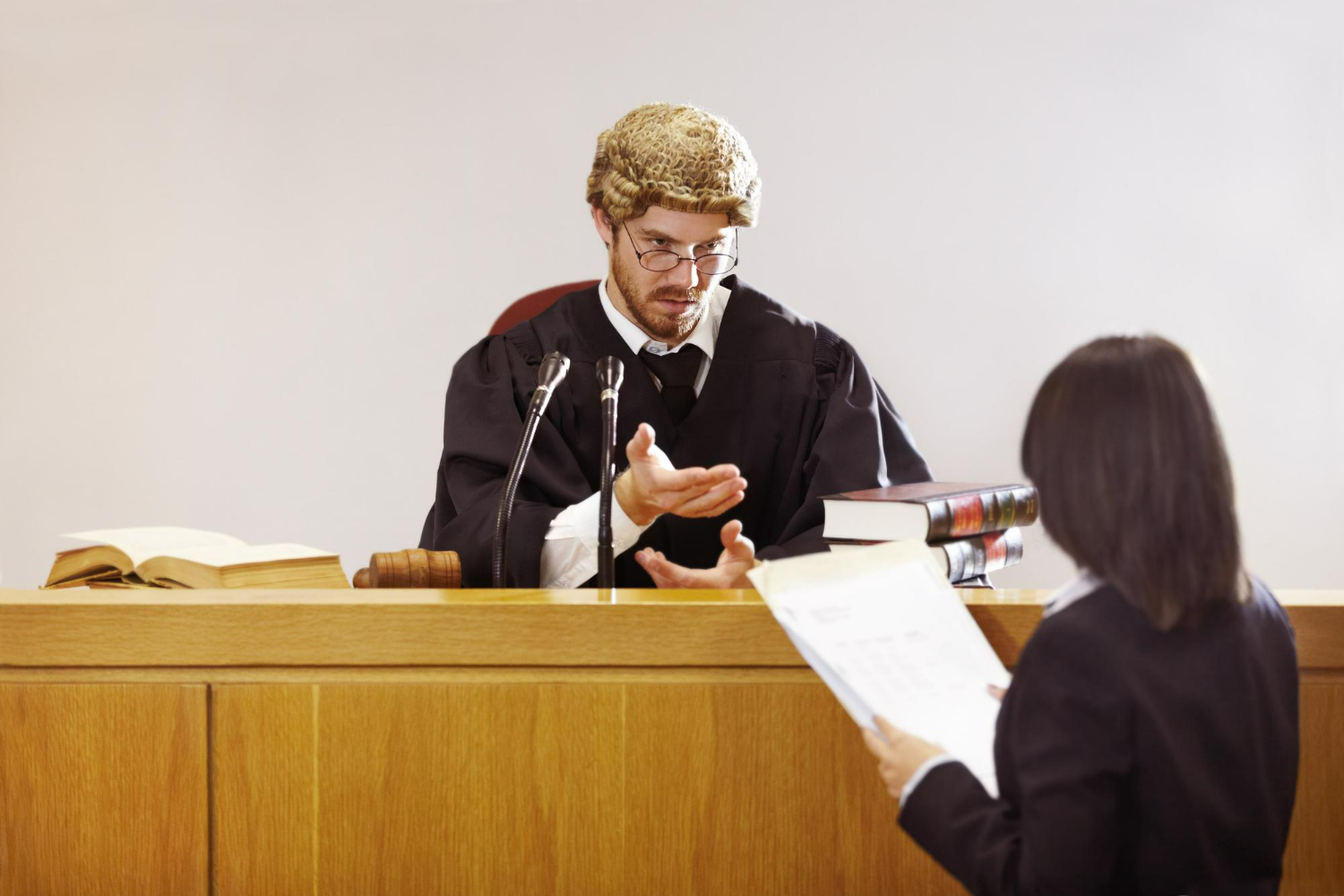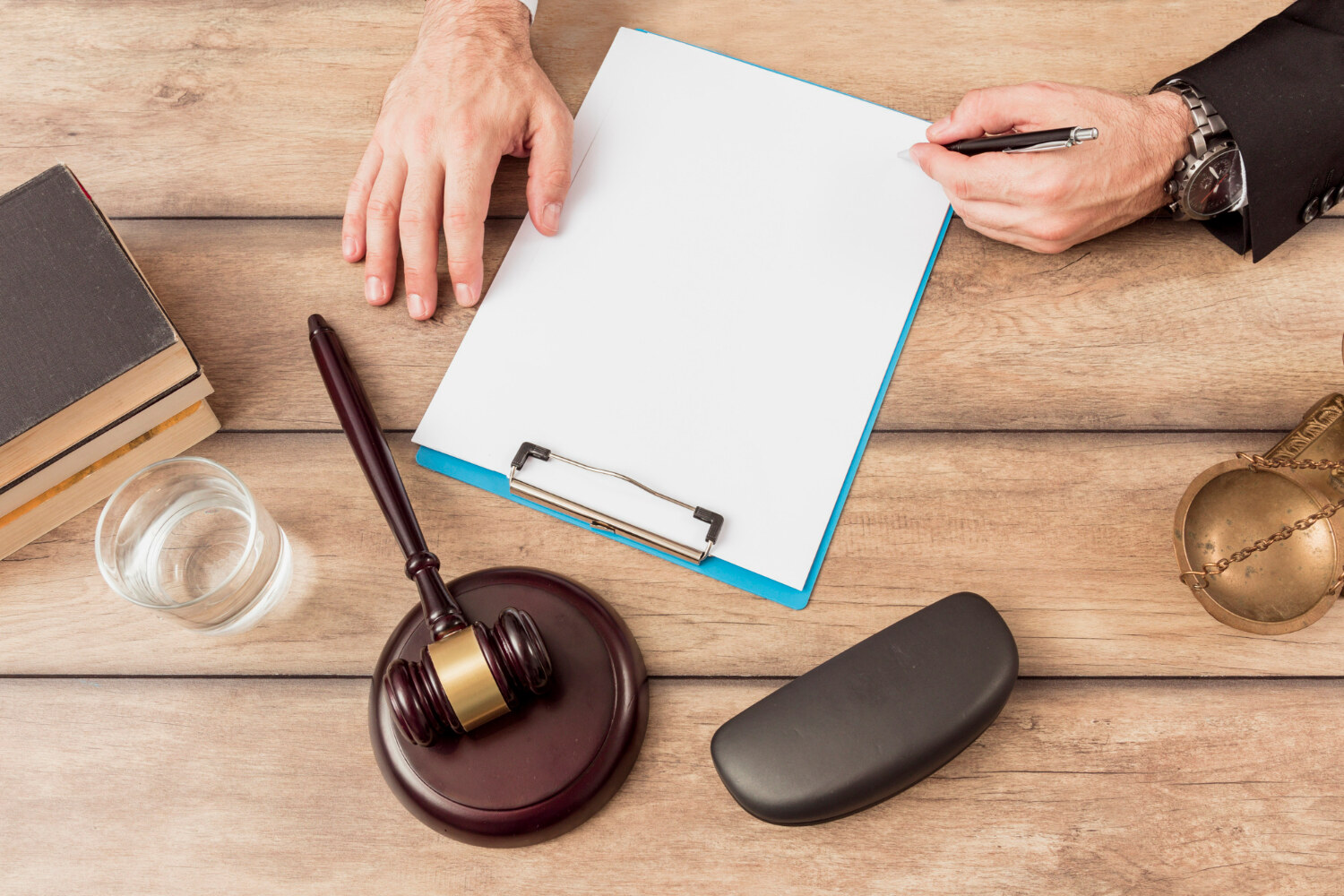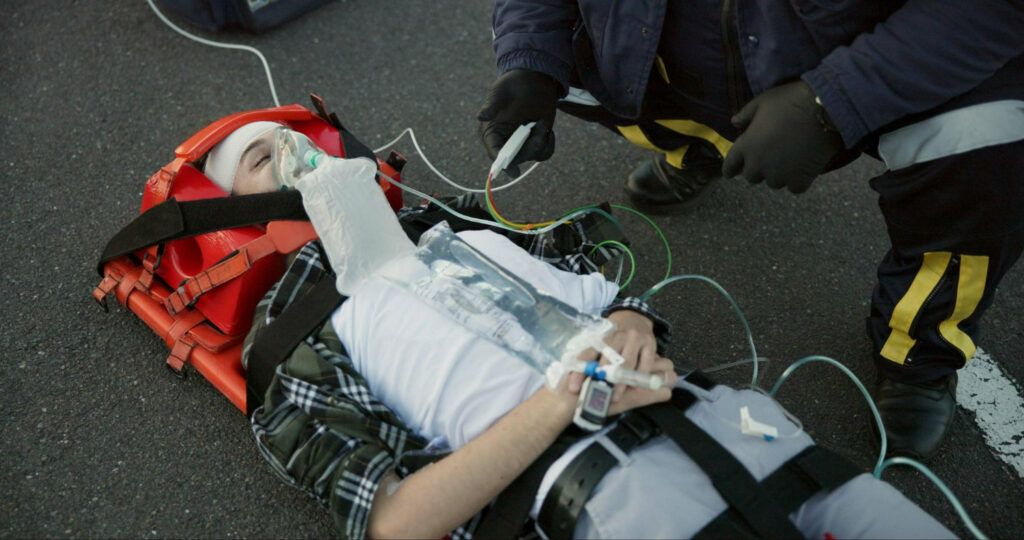Cross-examination is a pivotal component of personal injury lawsuits. It is a crucial phase where the credibility of witnesses and the strength of a case are rigorously tested. This stage can significantly influence the outcome of a trial, making it essential for both plaintiffs and defendants to understand and effectively navigate it.
In the courtroom, cross-examination allows opposing counsel to question witnesses, including the plaintiff, experts, and other testimonial witnesses. The manner in which witnesses respond can impact the jury’s perception and the overall persuasiveness of the case. Given its critical nature, mastering the art of handling cross-examination is vital for anyone involved in a personal injury court case.
Purpose of Cross Examination
The primary objectives of cross-examination include:
- Testing Witness Credibility: This involves assessing the reliability and trustworthiness of the testimony provided. Effective cross examination can expose inconsistencies, exaggerate claims, or biases that may affect a witness’s credibility.
- Clarifying Testimonies: It allows the questioning party to clarify ambiguous statements made during direct examination, ensuring the facts are clear and understandable to the jurors.
- Strengthening One’s Case: By effectively cross-examining witnesses, legal counsel can reinforce their narrative or weaken the opposition’s arguments, strategically swaying the case in favor of their client.
By exploring Cross Examination Tips, Personal Injury Cross-Examination techniques, and Handling Cross Examination advice, readers will gain insights into making their testimonies more robust and resilient against opposing counsel’s scrutiny.
Whether you are preparing to stand as a witness or are involved in strategizing for your trial, understanding these elements can significantly impact the strength and outcome of your Personal Injury Testimony in Dallas or beyond.
Preparing for Cross Examination in Personal Injury Claims

The success or failure of your personal injury lawsuit hinges on your ability to successfully navigate cross examination. Proper preparation can help demystify the process and enhance your confidence and effectiveness when facing the opposing counsel’s questioning.
Understand the Legal Process
Cross-examination is a fundamental aspect of the trial phase in personal injury lawsuits, particularly in Texas courts. During this phase, the defense lawyer questions the plaintiff and their witnesses, aiming to challenge the credibility of their testimony and the strength of their case. Understanding this process is crucial for anyone involved in a personal injury court proceeding.
- Objective: The main aim of cross examination is to find inconsistencies or exaggerations in the testimonies provided during direct examination. It serves to test the accuracy and reliability of the witness’s statements.
- Structure: Typically, cross examination questions lead, allowing the examiner to control the flow of conversation. The questions are crafted to elicit specific information that may weaken the witness’s previous statements or the case’s foundation.
Role of Your Attorney
A proficient Dallas Injury Lawyer is instrumental in preparing you for cross examination. Their expertise and experience are vital in anticipating potential lines of questioning and building a robust defense strategy.
- Preparation Sessions: Your attorney will likely conduct mock cross-examination sessions. These practice sessions are designed to familiarize you with the types of cross examination questions you might face and to refine your responses to ensure they are clear, concise, and devoid of unnecessary details that could be exploited by the opposing counsel.
- Review of Testimonies: Together with your lawyer, you will review your deposition and any prior testimonies to identify any areas where you might be vulnerable to aggressive questioning. Understanding the details of your own testimony is crucial to maintain consistency and credibility.
- Strategy Development: Cross-examination strategies might include instructing you on how to remain calm and composed under pressure, listen carefully to each question, and answer only what is asked without elaboration. Your Dallas Trial Lawyer will advise you on avoiding common traps set by skilled cross-examiners, such as being led into agreeing with misleading statements.
Tips for Effective Testimony
- Stay Calm and Composed: Maintaining composure under pressure is critical. Practice breathing techniques and focus strategies to manage stress during cross examination.
- Be Clear and Concise: Provide straightforward answers without unnecessary elaboration. If you do not know the answer, it is acceptable to say so rather than speculate.
Listen Carefully: Always listen to the entirety of the question before you begin your answer, ensuring you understand what is being asked. If a question is unclear, it’s appropriate to ask for clarification.
With the right preparation and understanding of the cross examination process, guided by an experienced Dallas Accident Attorney, you can approach your personal injury trial with confidence. This preparation not only helps mitigate the risks associated with cross-examination but also enhances your ability to convey your testimony effectively, thereby supporting your Personal Injury Testimony and maximizing your potential for a favorable outcome in your Injury Case Examination.
Common Cross Examination Strategies Used by Defense Attorneys
In the arena of personal injury claims, understanding how defense attorneys operate during cross examination can significantly influence the outcome of your case. By familiarizing yourself with the tactics used to question credibility, find contradictions, and minimize injury impact, you and your Dallas Injury Lawyer can better prepare to counter these strategies effectively.
Questioning Credibility
One of the primary objectives for defense attorneys during cross examination is to undermine the credibility of the plaintiff and their witnesses. This can be achieved through several approaches:
- Prior Inconsistent Statements: Defense lawyers will scour through all previous statements, including depositions and initial reports, to find any discrepancies with the testimony given during the trial. Highlighting these inconsistencies can suggest that a witness is unreliable or untruthful.
- Character Assessment: Sometimes, the defense might bring up past actions or unrelated incidents to question the plaintiff’s character. This tactic aims to bias the jury by painting the plaintiff negatively.
- Expert Opinion Challenges: Defense attorneys often question the credibility of medical experts by discussing potential biases or errors in the expert’s analysis or by presenting conflicting opinions from other experts.
Contradicting Testimonies
Defense attorneys meticulously compare testimonies given at different stages of the case to spot any contradictions. Here’s how they might exploit these findings:
- Medical Records vs. Testimony: If there are variances between what is claimed in court and what medical records indicate, defense attorneys will highlight these to suggest exaggeration of injuries.
- Police Reports: Discrepancies between a plaintiff’s court testimony and the details recorded in police reports can also be used to challenge the accuracy and reliability of the plaintiff’s account of the accident.
- Witness Statements: The defense will cross-examine other witnesses to find differences in the recounting of the accident or injury details, using any inconsistencies to undermine the collective credibility of the case.
Minimizing Injury Impact
A common defense strategy is to minimize the perceived impact of the injuries on the plaintiff’s life to reduce the amount of compensation awarded. Techniques include:
- Downplaying Severity: By questioning the degree of pain or impairment reported by the plaintiff and comparing it to medical evaluations or typical outcomes of similar injuries.
- Alternative Causes: Suggesting that injuries were pre-existing or caused by events other than the accident in question.
- Recovery Speed: Providing evidence that the plaintiff recovered more quickly than stated or could have mitigated their pain and suffering through different actions or treatments.
Preparing to Counteract Defense Strategies
To effectively counter these strategies, work closely with your Dallas Trial Lawyer to:
- Prepare Thoroughly: Review all your statements and the evidence to ensure consistency across all documents and testimonies.
- Understand the Legal Framework: Familiarize yourself with Legal Examination Tips and how Personal Injury Cross-Examination is typically conducted in Texas courts.
- Mock Sessions: Engage in mock cross-examination sessions to prepare for potential questions and to practice responding calmly and accurately.
Being well-prepared for these common defense tactics in a Dallas Cross Examination will help maintain the integrity of your claim and enhance your ability to secure just compensation for your injuries. Always ensure you have skilled Dallas Legal Advice on your side to navigate these complex interactions effectively.

Key Cross Examination Questions in Personal Injury Claims
Cross examination can be one of the most daunting aspects of a personal injury trial. Being well-prepared for the types of questions you might face is crucial. This section will outline typical cross examination questions you may encounter, provide strategies for responding effectively, and discuss the role of documentation in substantiating your testimony.
Typical Questions Faced
During a cross examination, defense attorneys aim to probe the credibility of your claims and uncover any inconsistencies. Here are some common questions you might encounter:
- Medical History: “Can you describe any previous injuries or health issues you had before the accident?” This question seeks to identify pre-existing conditions that might diminish the defendant’s liability.
- Details of the Accident: “Can you walk us through what happened during the accident?” Questions like these test your memory of the event and look for inconsistencies in your story.
- Severity of Injuries: “How has the injury affected your daily life?” or “What treatments have you undergone since the accident?” These inquiries assess the impact of the injuries and the ongoing medical attention required.
Economic Losses: “Have you missed work due to your injuries?” This question aims to establish the economic impact of your injuries on your life.
Responding Effectively
The way you answer during cross examination can significantly affect the outcome of your case. Here are some cross examination tips for responding effectively:
- Stay Calm and Composed: Keeping your cool under pressure can help maintain your credibility. Take a moment to breathe before answering to gather your thoughts.
- Listen Carefully: Make sure you understand the question fully before you respond. If a question is unclear, it’s appropriate to ask for clarification.
- Be Concise and Accurate: Answer the question without providing unnecessary details that could lead to further probing. Avoid speculative answers; if you do not know the answer, it is better to say so.
- Consistency: Ensure your answers align with previous statements and testimonies. Consistency is key to maintaining credibility.
Role of Documentation
Documentation plays a pivotal role in supporting your answers during cross examination:
- Medical Records: Bring comprehensive medical records that detail every aspect of your injuries and treatment. These documents can support claims about the severity of your injuries and the necessity of ongoing treatments.
- Financial Records: Wage statements, receipts for medical expenses, and documentation of related costs help substantiate economic loss claims.
- Expert Testimonies: Reports or testimonies from medical experts or accident reconstruction experts can provide authoritative backing to your claims, especially when your testimony is challenged.
Being well-prepared with the right documents can reinforce your responses and provide tangible evidence that supports your claims.
Techniques to Maintain Composure and Credibility During Cross Examination

During a cross examination in a personal injury claim, maintaining composure and ensuring the credibility of your testimony are paramount. The courtroom can be an intimidating environment, and the pressure from a skilled opposing counsel can be immense. Here, we discuss effective techniques to help you remain poised, maintain consistency in your testimony, and navigate tricky questions.
Maintaining Poise Under Pressure
Staying calm under pressure is critical during cross examination. Here are some techniques to help maintain your composure:
- Breathing Techniques: Practice deep, slow breathing before and during your testimony to help reduce stress and maintain calm. This can prevent you from rushing your answers and allows you a moment to think.
- Preparation and Rehearsal: Work with your Dallas Injury Lawyer to thoroughly prepare and rehearse your testimony. Familiarity with the material and the process can significantly reduce anxiety.
- Focus on the Facts: Keep your focus on the facts of your case. Avoid getting emotionally involved in the questions or the attorney’s tone.
- Pause Before Answering: Always take a brief pause before responding to each question. This not only gives you time to formulate your answer but also helps to control the pace of the questioning.
Consistency in Testimony
The consistency of your testimony plays a critical role in establishing and maintaining your credibility. Inconsistent statements can be quickly seized upon by an experienced Dallas Trial Lawyer for the defense. Here’s how to ensure consistency:
- Review Your Statements: Before the trial, review all your previous statements and depositions. Be familiar with every detail you have previously disclosed.
Stick to the Truth: Always stick to the truth. Fabrications can lead to inconsistencies, which are often easy for experienced attorneys to expose. - Clarify When Necessary: If a question is based on a misunderstanding or misrepresentation of your earlier statements, don’t hesitate to clarify the inconsistency.
Handling Tricky Questions
Dealing with complex or misleading questions is a common challenge during cross examination. Here’s how to handle these effectively:
- Understand the Question: Ensure you fully understand the question before you answer. If a question is unclear or contains multiple parts, it’s acceptable to ask for clarification.
- Avoid Speculation: Do not speculate or guess in your answers. If you do not know the answer, it is better to say so than to provide potentially inaccurate information.
- Redirect When Necessary: If a question is misleading or based on incorrect information, redirect your answer to reflect the accurate facts. Your Dallas Accident Attorney can assist in framing these responses during your preparation.
- Stay Calm: If the line of questioning becomes aggressive or overly personal, maintain your composure. Responding with anger or frustration can undermine your credibility and impact the judge or jury’s perception of your testimony.
By mastering these techniques, you will be better equipped to handle the pressures of cross-examination in a personal injury court. With the support of skilled Dallas legal advice, you can approach your cross-examination with confidence, ensuring that your responses effectively support your claim and maximize your potential for a favorable outcome.
Mastering the Courtroom: Effective Strategies for Cross Examination
In conclusion, navigating the complexities of cross examination in a personal injury lawsuit requires a deep understanding of both the legal process and human psychology. This article has provided comprehensive strategies to help claimants handle the high-pressure environment of a courtroom with poise and confidence.
We’ve explored several crucial strategies for effectively managing cross examination:
- Staying Calm Under Pressure: Utilizing breathing techniques and maintaining composure to ensure clear and thoughtful responses.
- Maintaining Consistency in Testimony: Being familiar with your past statements and ensuring all your responses are aligned to avoid discrepancies that could undermine your credibility.
- Handling Tricky Questions: Approaching complex or misleading questions carefully, asking for clarifications when necessary, and always sticking to the facts.
Thorough preparation and skilled legal representation are indispensable in maximizing your chances of a favorable outcome during a cross examination. Ensuring that you are well-prepared, understand the typical cross examination questions, and can employ effective cross examination strategies are all critical elements that contribute to the success of your case.
At Freese and Goss, our experienced Dallas Injury Lawyers are dedicated to providing you with the expert legal guidance necessary to navigate your personal injury claim effectively. Our team is skilled in preparing clients for cross examination, ensuring that every aspect of your testimony is robust against the rigorous scrutiny of opposing counsel.
If you are facing a personal injury claim, don’t underestimate the importance of expert preparation for your cross examination. Contact Freese and Goss today to ensure you have the best possible legal support on your side.
Working closely with our knowledgeable Dallas Trial Lawyers can significantly impact the outcome of your claim, helping you secure the compensation you rightfully deserve. Reach out now to schedule a consultation and take a proactive step towards protecting your rights and your future.








